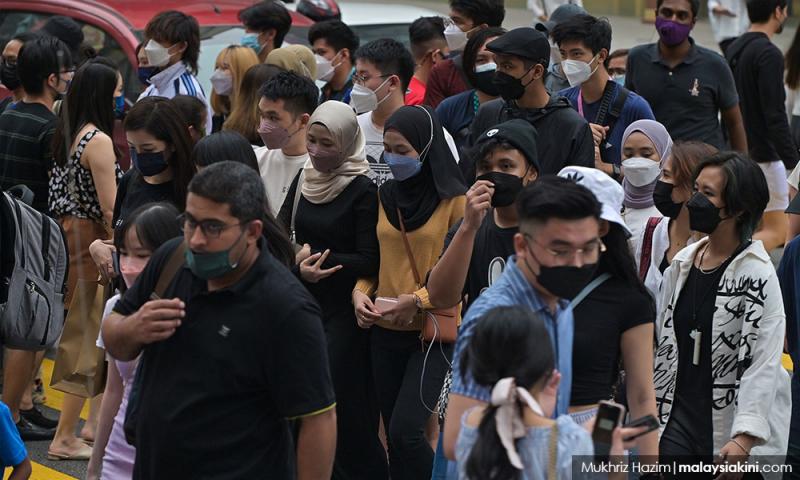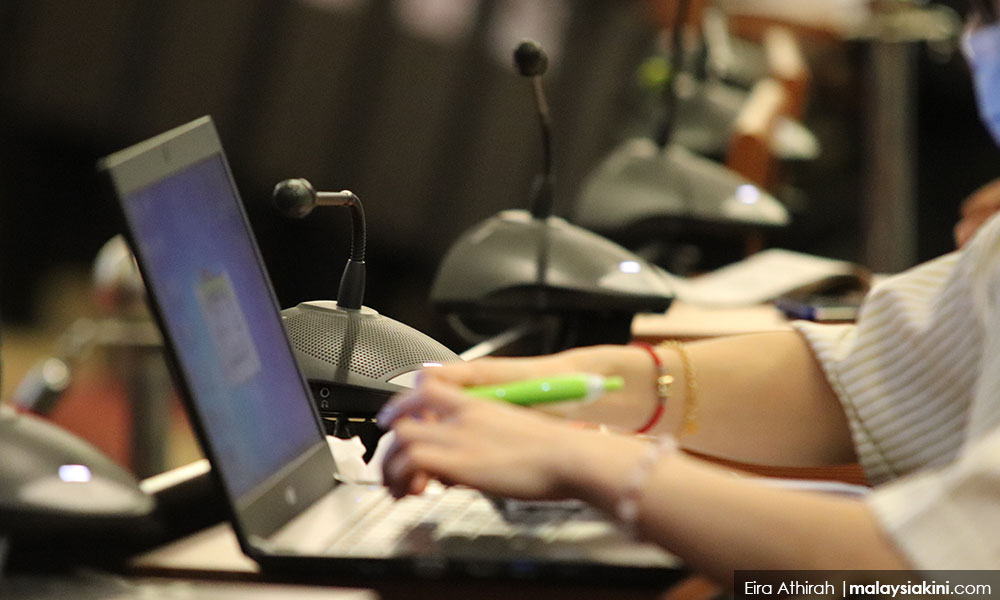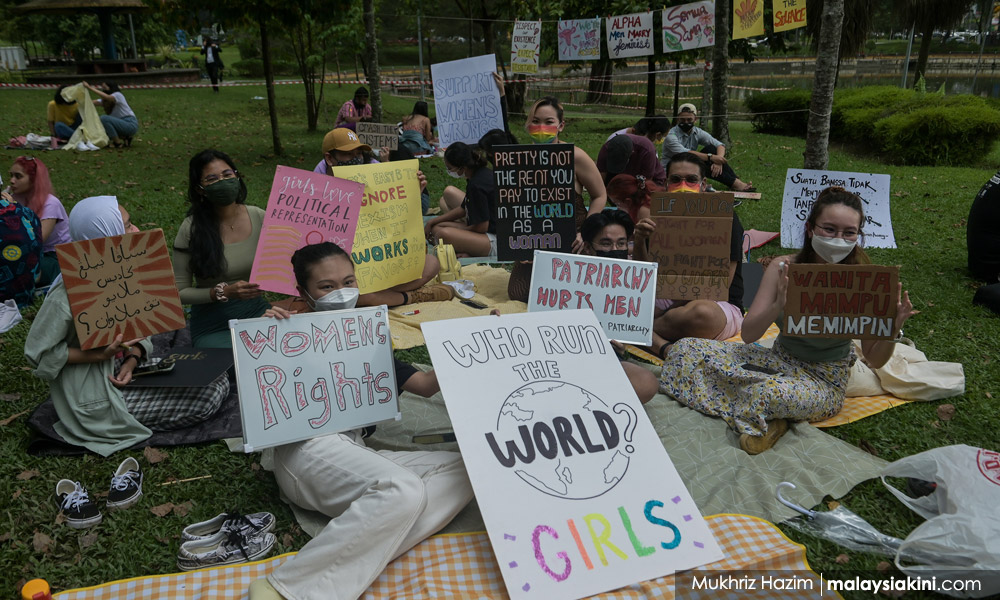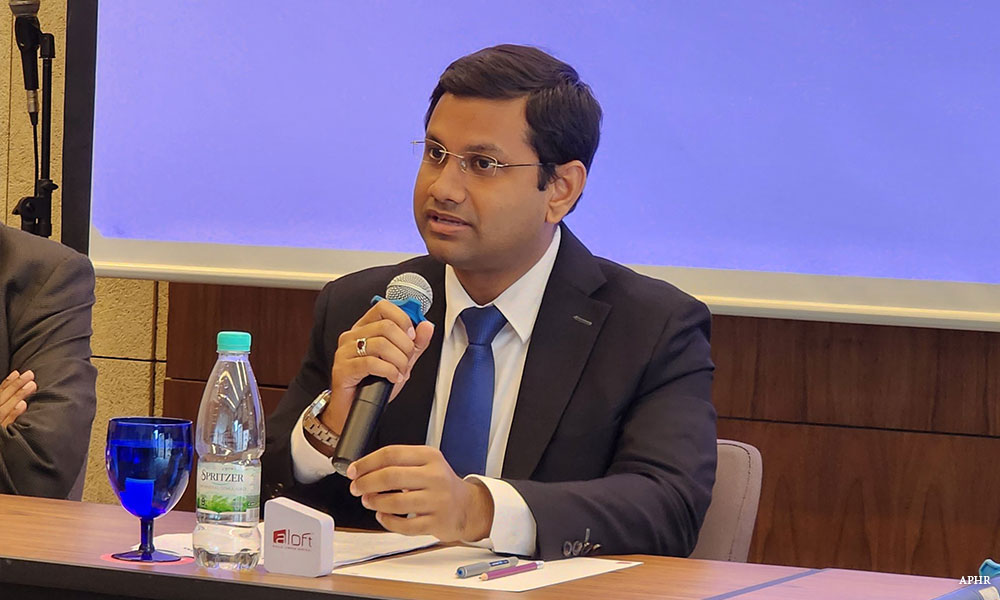
S Thayaparan
“We engaged with the National Security Council, religious authorities and community leaders to tell them that it was very dangerous to allow race and religious issues to be played (up) by politicians."
COMMENT | As reported in the press, a group of current and former MPs of Asean countries warned of the dangerous rise of hate speech in this country.
The problem here in Malaysia is that hate speech is difficult to define and indeed people who advocate egalitarian and secular positions would be accused of hate speech or hurting the sensitivities of others.
For instance, the speech and policies against the LGBTQ community are hateful but because it comes under the umbrella of religious and Asian values, it is condoned.
Indeed, LGBTQ activists are often targeted by the state and people find themselves in a position where their rights to speech and assembly are sanctioned because of the sensitivities of the majority.
Religion and race are, of course, the battle cry for race-based hegemons. Indeed, when non-Malays speak on racial and religious matters, they have to be extremely mindful as what they say could invite intervention by the state.
However, what far-right and extremist political operatives say about non-Malay communities is merely part of the “social contract”.
Vulgar expression of the state
The reality is that hate speech has always been the vulgar political and religious expression of the state. Whether doctrinal or legislative, such speech was merely the expression of state actions.
Look, we have a mainstream political dogma that claims that the Malay community will become slaves in their lands. We have the political establishment that warns that the Malays are divided and susceptible to manipulation by non-Malay political factions which are detrimental to the wellbeing of the Malay community.
Any rational person would consider such speech “incitement”. Any rational person would be offended by such speech since it is ahistorical and grounded in fabrications that are unfortunately part of the mainstream racial narratives of this country.
At this point, “incitement” is merely a politically correct expression for not having to deal with the fundamental issues facing this country.
“We engaged with the National Security Council, religious authorities and community leaders to tell them that it was very dangerous to allow race and religious issues to be played (up) by politicians."
– Former IGP Abdul Hamid Bador
COMMENT | As reported in the press, a group of current and former MPs of Asean countries warned of the dangerous rise of hate speech in this country.
The problem here in Malaysia is that hate speech is difficult to define and indeed people who advocate egalitarian and secular positions would be accused of hate speech or hurting the sensitivities of others.
For instance, the speech and policies against the LGBTQ community are hateful but because it comes under the umbrella of religious and Asian values, it is condoned.
Indeed, LGBTQ activists are often targeted by the state and people find themselves in a position where their rights to speech and assembly are sanctioned because of the sensitivities of the majority.
Religion and race are, of course, the battle cry for race-based hegemons. Indeed, when non-Malays speak on racial and religious matters, they have to be extremely mindful as what they say could invite intervention by the state.
However, what far-right and extremist political operatives say about non-Malay communities is merely part of the “social contract”.
Vulgar expression of the state
The reality is that hate speech has always been the vulgar political and religious expression of the state. Whether doctrinal or legislative, such speech was merely the expression of state actions.
Look, we have a mainstream political dogma that claims that the Malay community will become slaves in their lands. We have the political establishment that warns that the Malays are divided and susceptible to manipulation by non-Malay political factions which are detrimental to the wellbeing of the Malay community.
Any rational person would consider such speech “incitement”. Any rational person would be offended by such speech since it is ahistorical and grounded in fabrications that are unfortunately part of the mainstream racial narratives of this country.
At this point, “incitement” is merely a politically correct expression for not having to deal with the fundamental issues facing this country.

When it comes to racial or religious issues, the state has always, either through legislation or political norms, endorsed hate speech as a means to reflect the racial and religious superiority of the majority.
But more importantly, it has been accepted by mainstream political operatives as the realpolitik of this country instead of something to be raged against.
Turning a blind eye
The bigger danger in curbing free speech under the guise of combating “hate speech” is that when it comes to totalitarian-leaning regimes – like the ones in Malaysia – the people who most often suffer are those who think that “hate speech” laws are a panacea for uncivil behaviour.
They ignore the reality that uncivil behaviour – hate speech – is the reflection of political dogma in this country.
Hate speech occurs every day in this country and because of who it is directed at, the state turns a blind eye.
When a woman writes something that people do not agree with, they resort to misogynistic hate speech to vilify her.

When a person talks about specific laws on racial and religious equality, the person's race is used as a starting point of the criticism, often in racist ways, especially if his or her comments go against the conventional narratives of the state or the people who support the state.
And what of legitimate criticisms of the Islamic faith by various NGOs like Sister in Islam, who are always on the receiving end of police reports for tarnishing or insulting Islam; what about these types of “insults”? Does quoting from religious texts which put religion in a bad light qualify as an insult to the religion?
There’s that but, more importantly, who defines Islam in this country? The state and, of course, the dialectic between Malay power structures that use religion to ensure compliance amongst the Muslim polity.
Hence who determines what is insulting to Islam is the state, in this instance the Malay/Muslim powerbrokers in this unity government.
Distrust
“The lack of trust between different communities, which is the basis of some of these narratives, needs to be addressed through open and frank discussions to get to the root cause of the problems. If not, these issues will only recur in the future,” said former Singapore MP Mohamed Irshad.

Ex-Singapore MP Mohamed Irshad
This is rich, coming from a former Singaporean MP, which has more laws that curb freedom of speech and expression than Malaysia. In fact, I would argue there is more freedom of speech in Malaysia than in Singapore.
However, Mohamed does raise a good point. The problem is that supremacist narratives that create distrust between communities are the basis of the social contract. You just have to go back to the words of Prime Minister Anwar Ibrahim and the young student he was berating.
This is the reality of hate speech in this country. Mind you, I am against hate speech laws of any kind and believe there are more than enough legal instruments, civil and criminal, to curtail the most toxic of speech.
However, if I had to define hate speech, I would define it this way - hate speech in this country is defined by what Malay politicians can say and what non-Malays can’t.
S THAYAPARAN is Commander (Rtd) of the Royal Malaysian Navy. Fīat jūstitia ruat cælum - “Let justice be done though the heavens fall.”
This is rich, coming from a former Singaporean MP, which has more laws that curb freedom of speech and expression than Malaysia. In fact, I would argue there is more freedom of speech in Malaysia than in Singapore.
However, Mohamed does raise a good point. The problem is that supremacist narratives that create distrust between communities are the basis of the social contract. You just have to go back to the words of Prime Minister Anwar Ibrahim and the young student he was berating.
This is the reality of hate speech in this country. Mind you, I am against hate speech laws of any kind and believe there are more than enough legal instruments, civil and criminal, to curtail the most toxic of speech.
However, if I had to define hate speech, I would define it this way - hate speech in this country is defined by what Malay politicians can say and what non-Malays can’t.
S THAYAPARAN is Commander (Rtd) of the Royal Malaysian Navy. Fīat jūstitia ruat cælum - “Let justice be done though the heavens fall.”

What's hate speech?
ReplyDeleteWakakaka…
So simple!
As defined by the ketuanan freaks, as & when, the circumstances suit them.